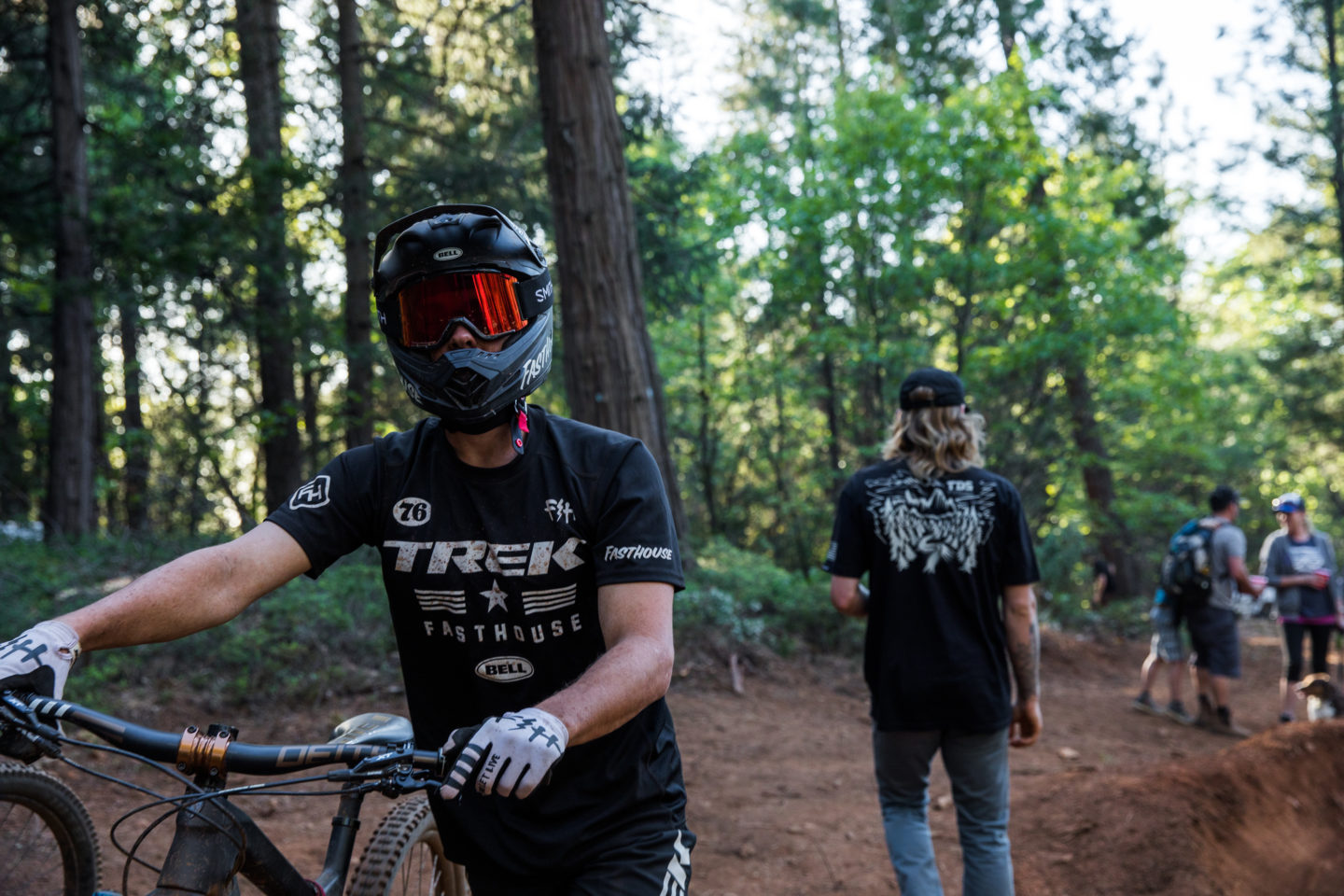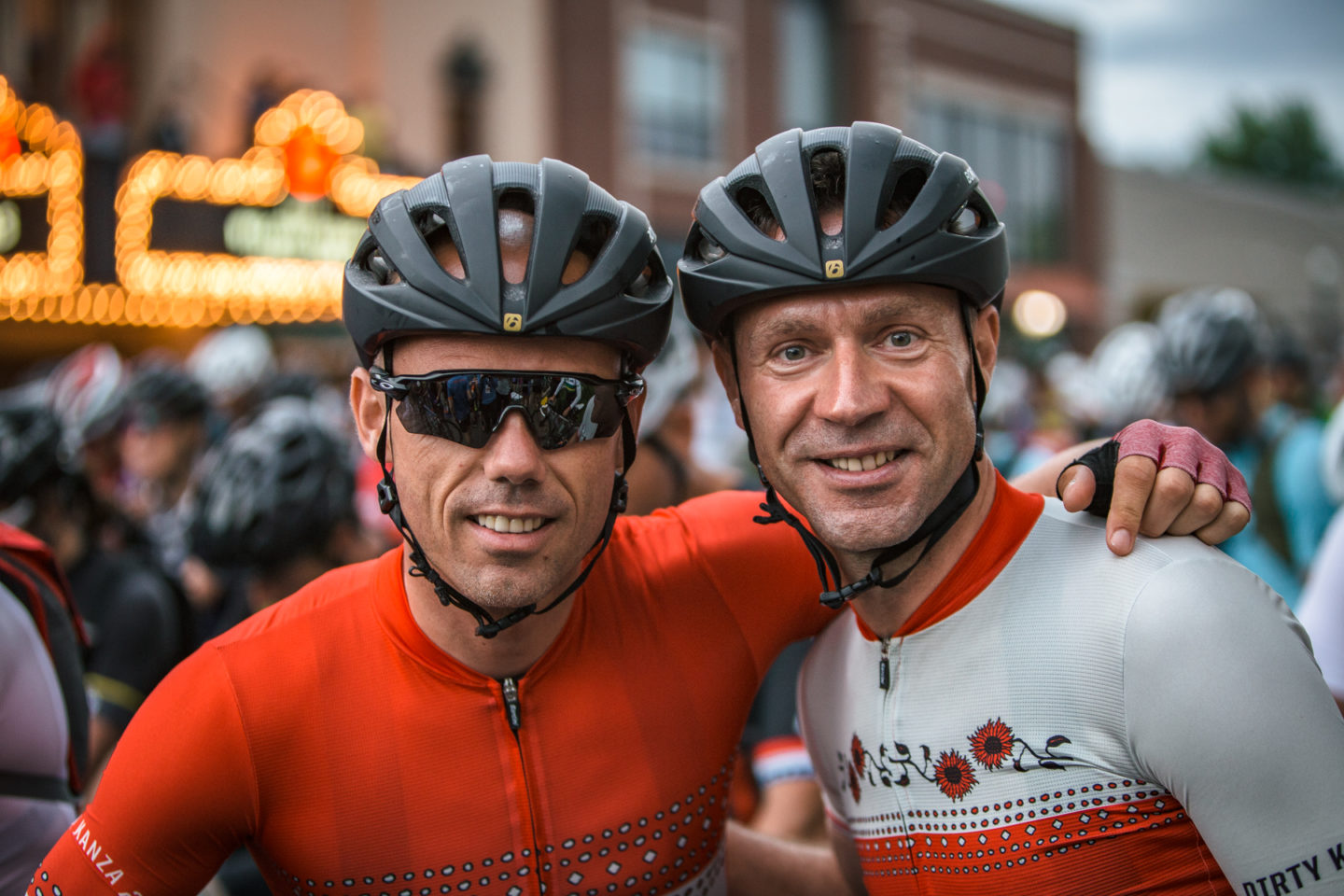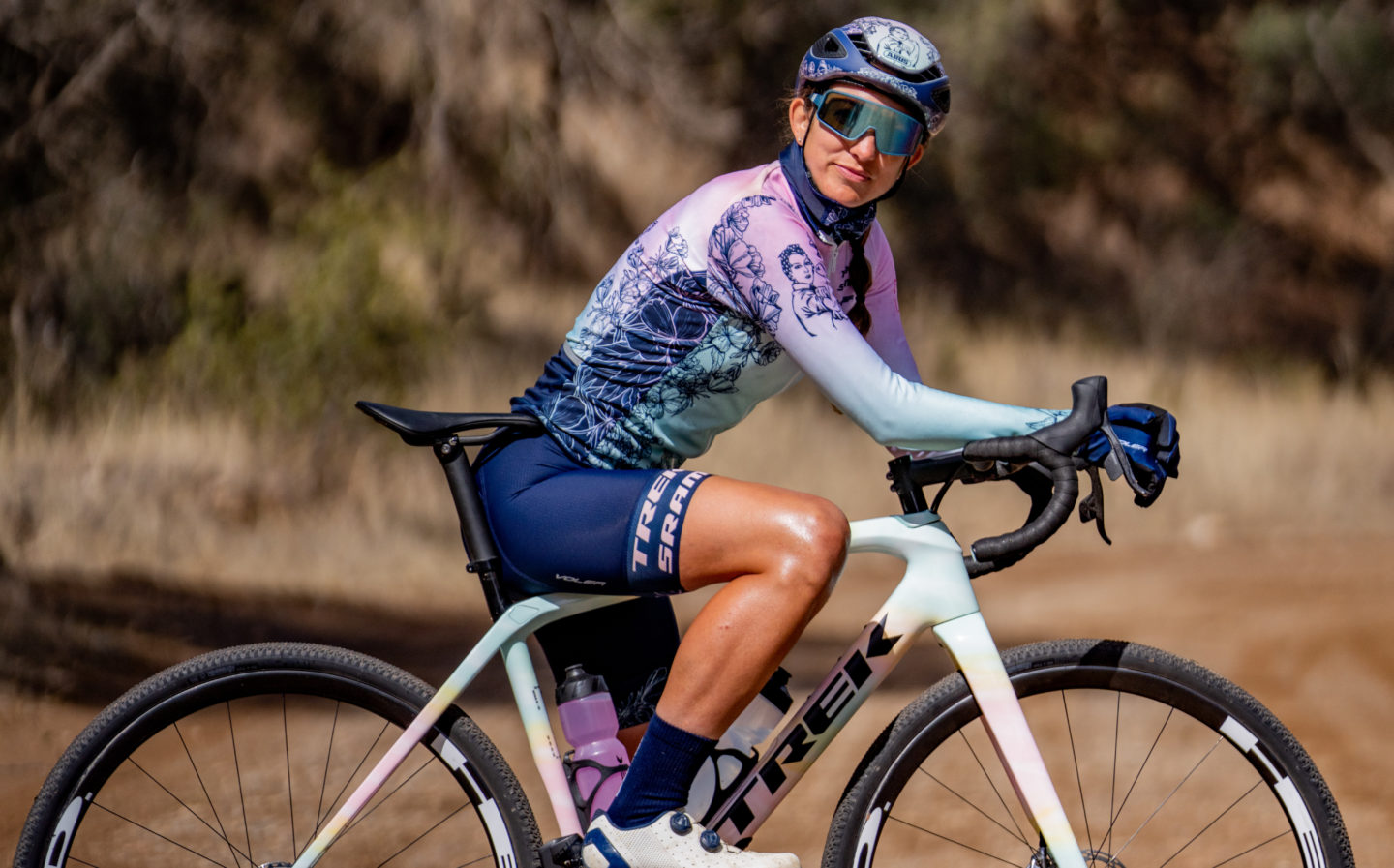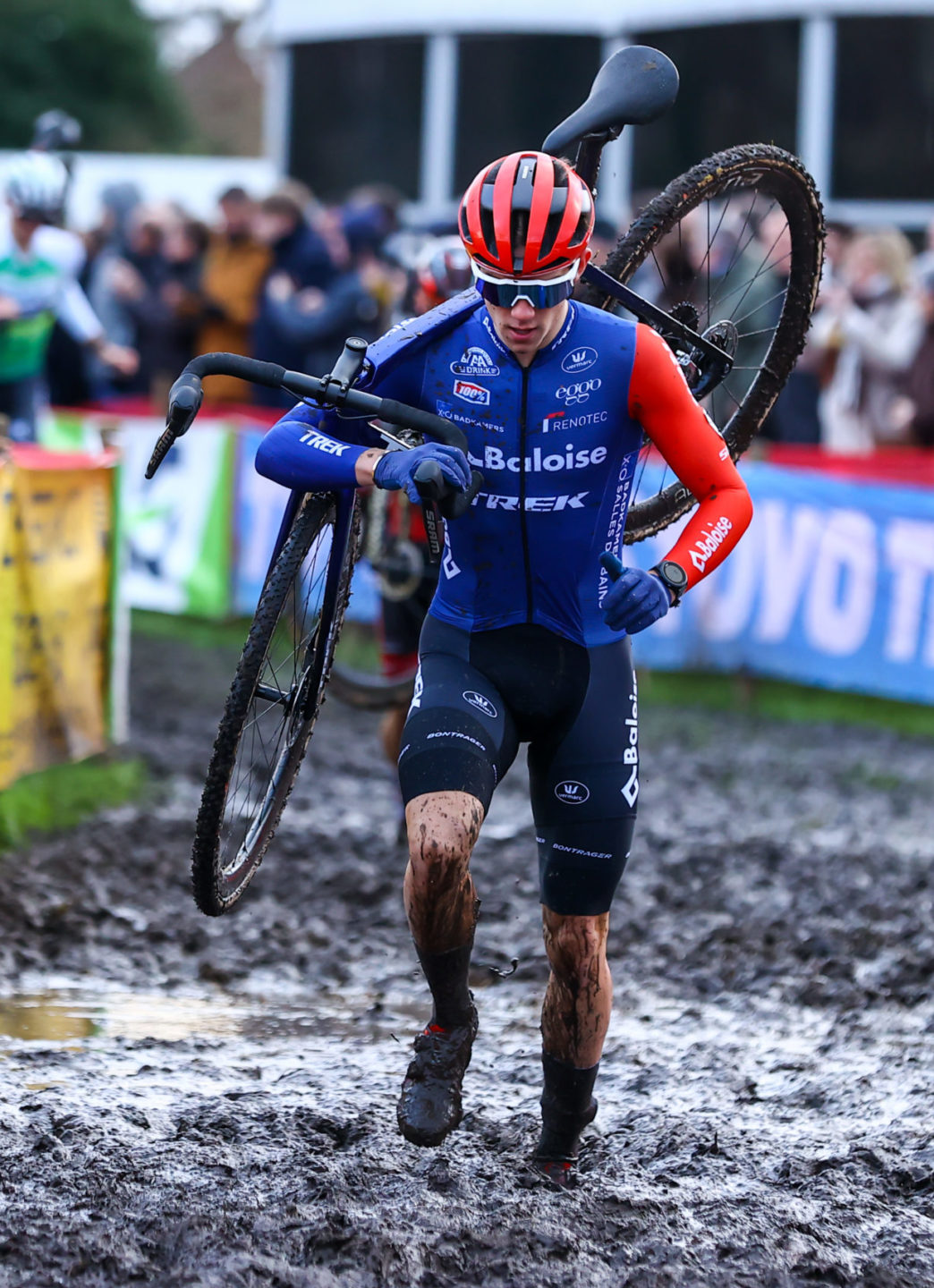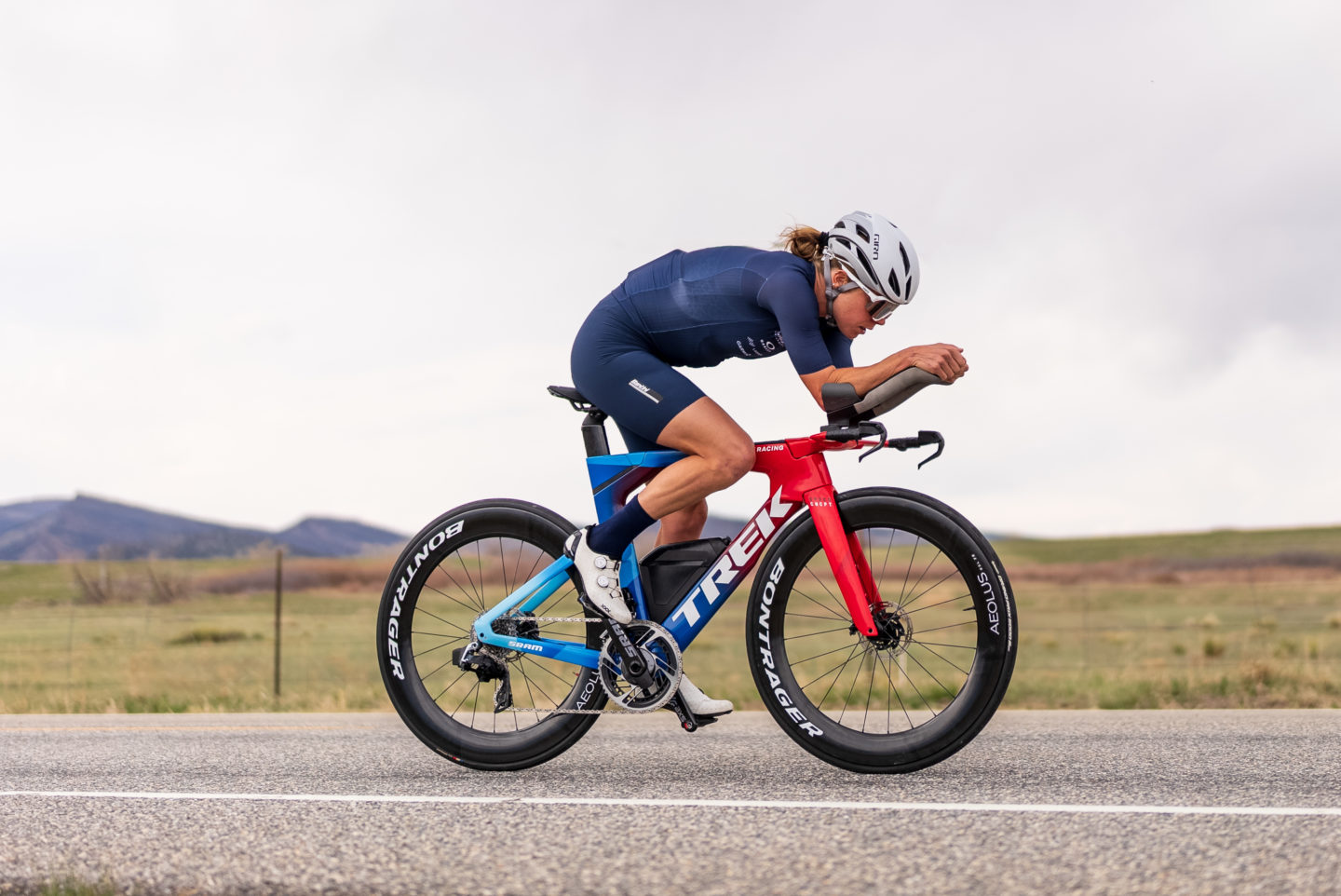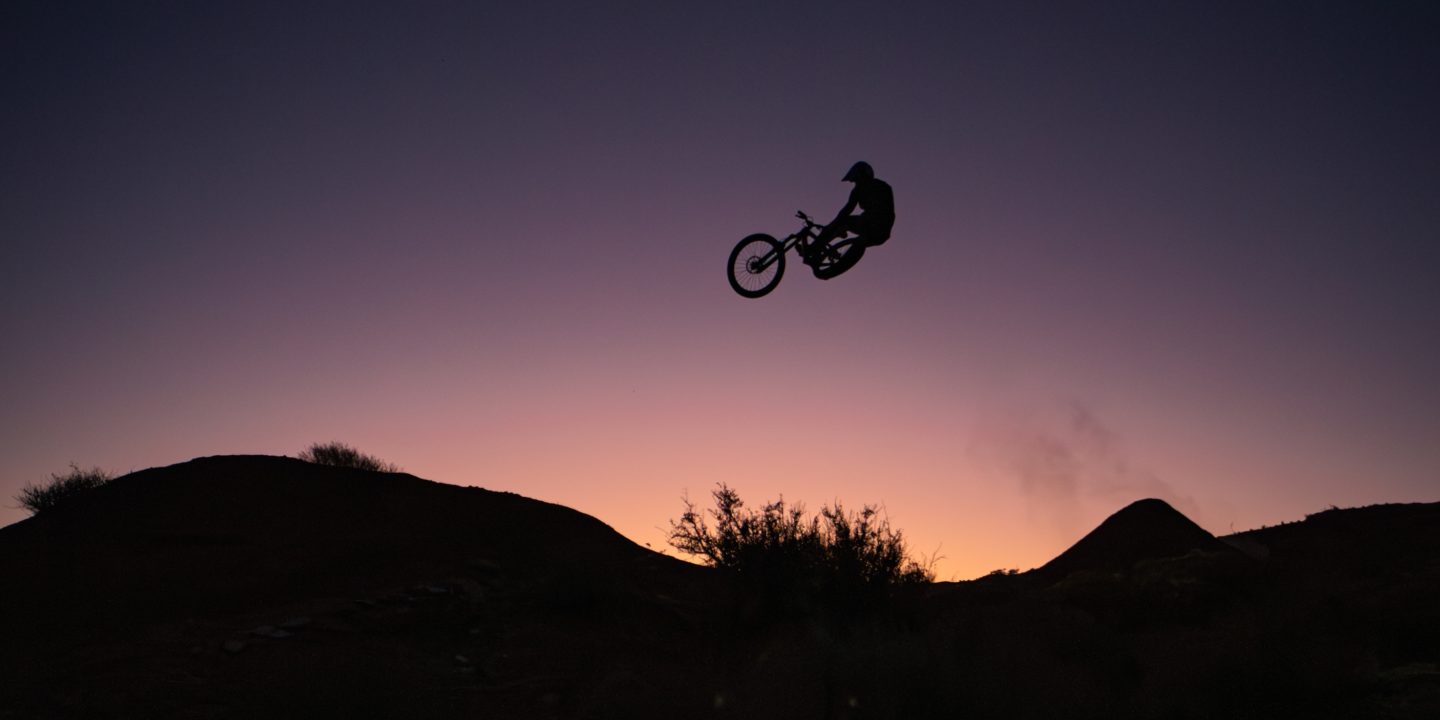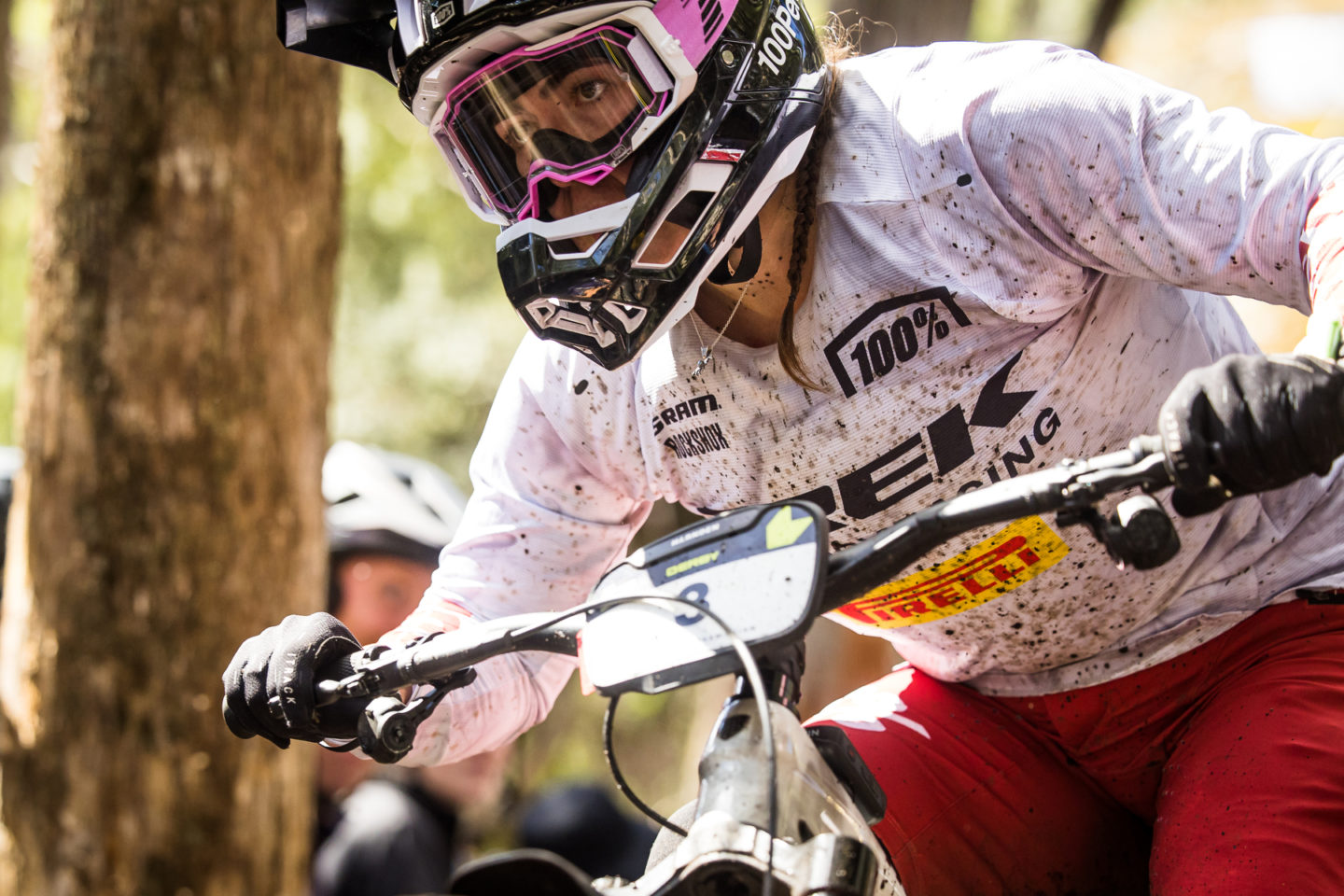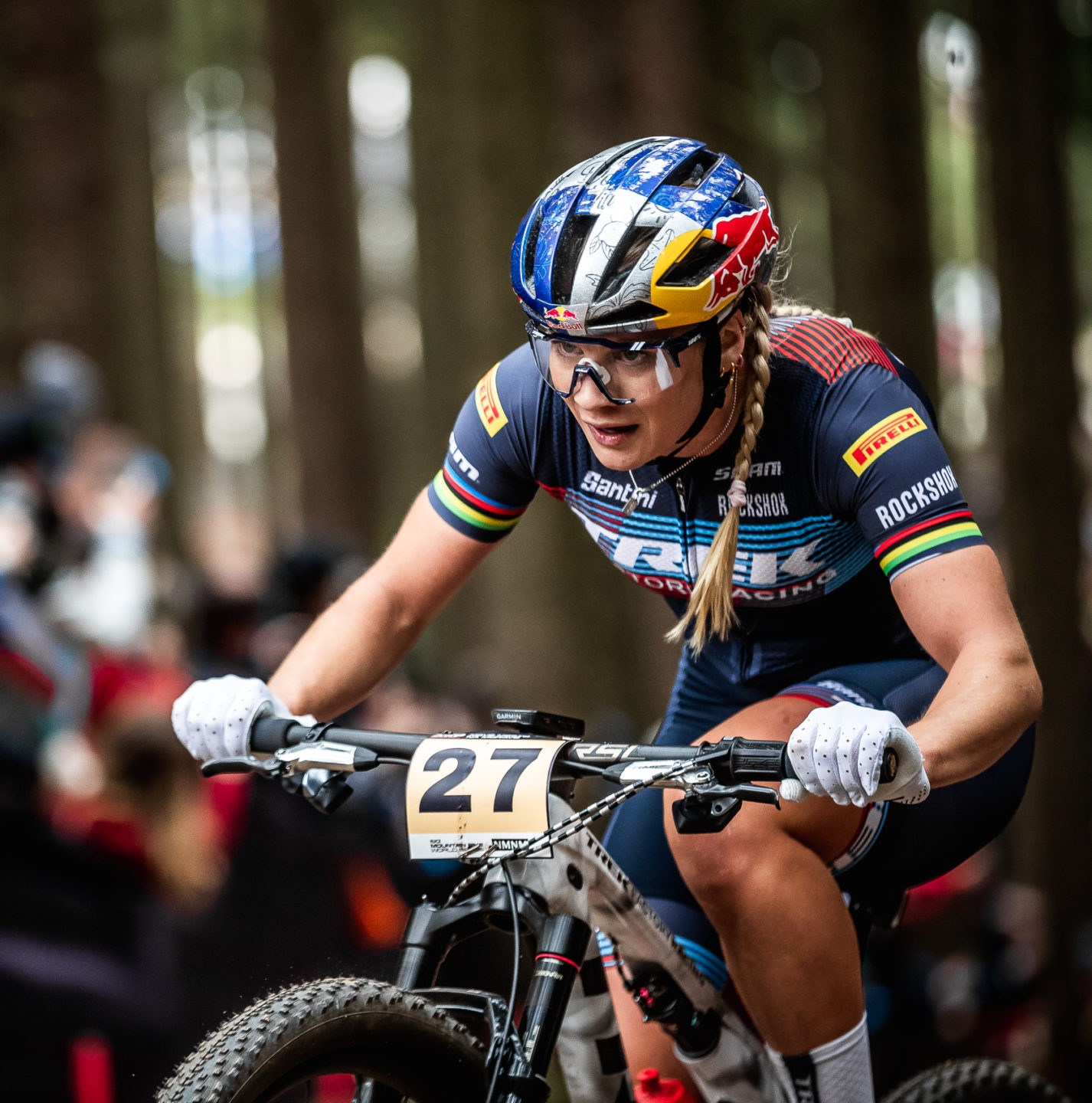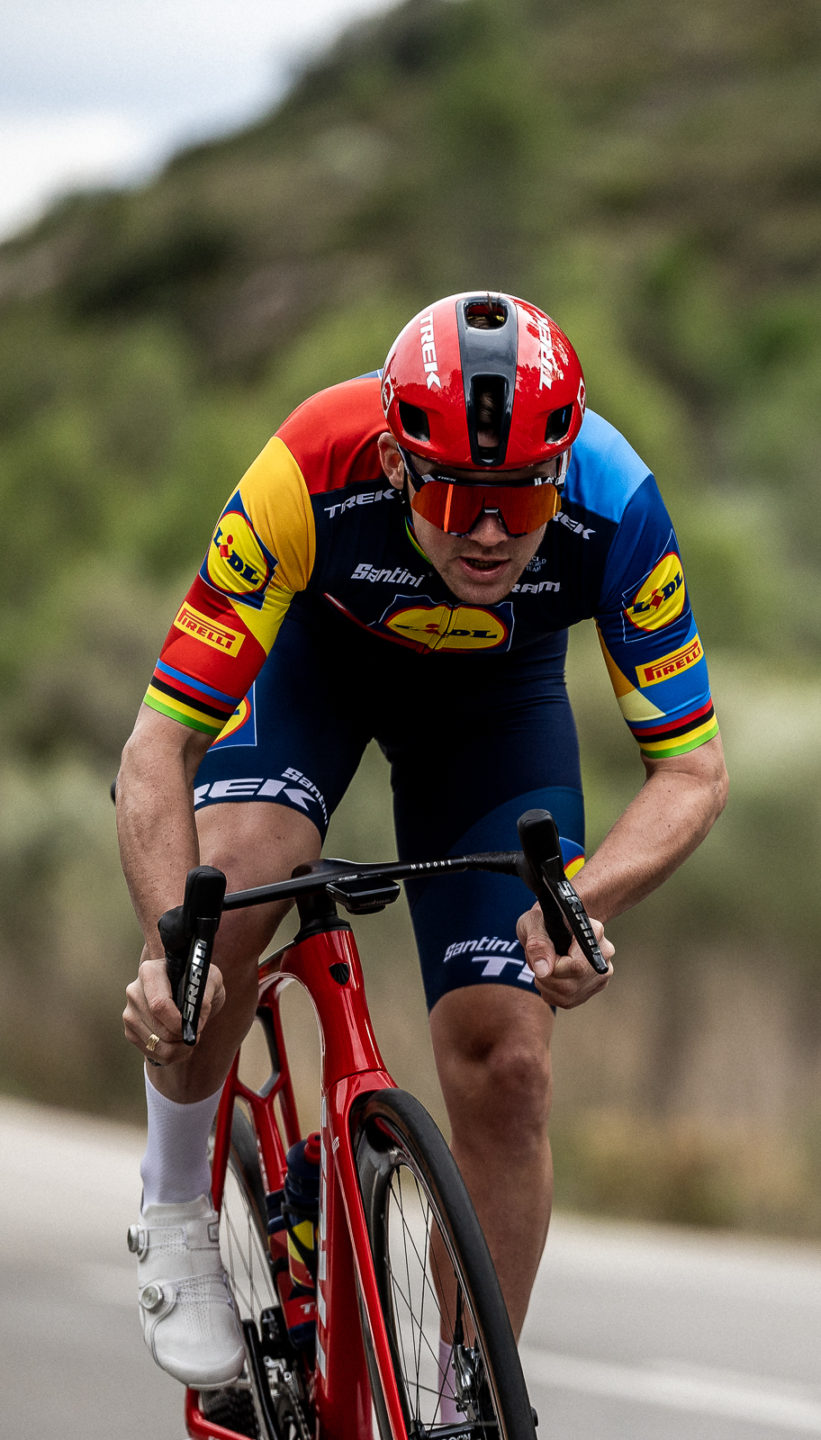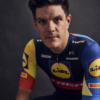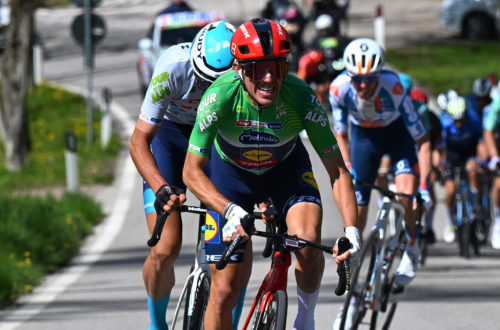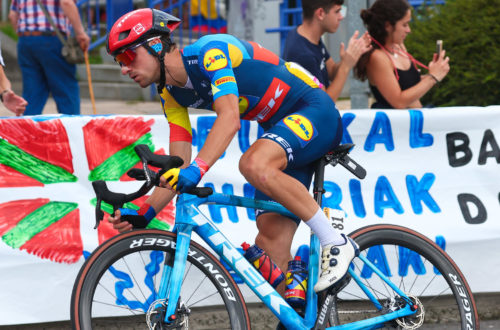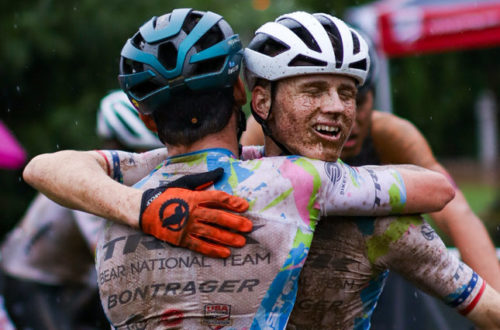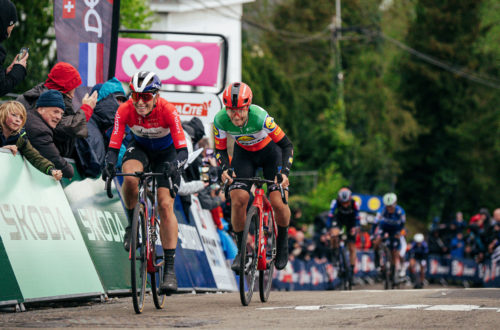Jasper Stuyven relives the overwhelming joy of winning a Monument
Jasper Stuyven remembers the fine details of his Monument win at Milano-Sanremo, yet the final kilometers seem like blur, a strange sensation that occurs when the mind is situationally alert but emotionally overwhelmed. His limbic system took charge the moment he decided to attack from a select group with a little more than two kilometers to go. Nothing could distract from the finish.
“I can’t describe the feeling I had when I crossed the line. I just can’t,” Stuyven says. “I think it’s a moment of true happiness, but also a moment of nothing. Like nothing is going through your mind, nothing is around you. You’re alone in the world.”
I think it's a moment of true happiness, but also a moment of nothing.
Stuyven has won big races before, including the cobbled classic Omloop Het Nieuwsblad in 2020. Winning Milano-Sanremo was different. As a young pro, he was hailed as a potential Monument winner, but until March 20, he consistently finished on the cusp of career-defining results: 10th at Milano-Sanremo and seventh in the Tour of Flanders in 2018; fourth and fifth at Paris-Roubaix in 2017 and 2018, respectively.
In the weeks after he won his first Monument, after his capacity for reflection kicked back online, Stuyven’s dumbstruck joy evolved into a feeling of relief and peace.
“I came to the pros with a lot of high expectations, and then winning a stage in a WorldTour race or winning a semi-classic was nice, but apparently it wasn’t enough,” Stuyven says. “If you believe everyone — what they say, or what you read, or what other people tell you — then I think morale would be under the ground. So for me that’s something that I’m kind of happy about afterwards, that I kept this belief in myself.”

New kit, same ambition for Jasper at this year's Milano-Sanremo.
The win was staggering in both the short and long view, something incomprehensible even to the man who understood his capacity to win cycling’s biggest races better than anyone. Stuyven won Milano-Sanremo and etched himself into cycling history. An already-stellar career validated in just a few seconds of impulsive brilliance.
“Instinct,” Stuyven says. “When you’re good, you do the right thing at the right moment, and you’re doing it without too much thinking. And I think that’s really what happened that day.”
Setting the stage
Stuyven is a classics specialist. Spring is his biggest season. Safe to say, he was in peak form for the race.
But Milano-Sanremo wasn’t necessarily his “target” either. Stuyven had his eye trained towards the cobbled races, like the Tour of Flanders, where he finished fourth two weeks later, and Paris-Roubaix, which was scheduled for April 11 before being postponed to October.
“I really went in with the idea that it’s a race I want to win,” Stuyven says. “I’m paying attention to every detail, paying attention to nutrition, paying attention to staying out of the wind.
“But it would be a lie if I said that it was my biggest goal of the classic season.”

Jasper going solo. | Tim de Waele/Getty Images
To understand Stuyven’s mindset, consider Milano-Sanremo’s unique personality. It’s sometimes called the “sprinters’ classic” because of its long flat profile, but that nickname is misleading. Yes, it has been won by bunch sprint specialists in the past, but it has been won by climbers, solo artists and puncheurs, too.
A string of short climbs in the final 60 kilometers of the massively long 300-kilometer race serve as set pieces for attacks, none more important or iconic than the last: The Poggio di Sanremo, peaking with seven kilometers to go. The battles that occur on the way up the Poggio — and the way they settle on the way down, before the last flat kilometers to the finish — often define the race after more than six hours of racing.
Stuyven felt confident heading into race day, but so did a lot of other riders in the field. More so than almost any other race, Milano-Sanremo can be won by any type of rider. So Stuyven kept thoughts of victory ready but back of mind, remaining alert and monitoring his legs through the first 230 kilometers of the race.
We were always at the front without spending the energy to be there.
“Milano-Sanremo is a really particular race, because the start is never super hard, and you never have to push for a long time,” Stuyven says. “Sanremo is a lot about being mentally strong, and not getting influenced by a sleepy feeling in the beginning. But I have to say for myself, I had a good feeling quite early.”
Just before the start of Capo Mele, the first of two small climbs that ignite the race’s end game machinations with approximately 60 kilometers to go, Stuyven began to embrace the idea of victory. The bunch was going quite hard at that point, but he felt fresh. Trek-Segafredo teammate Nicola Conci was farther up the road in the breakaway, giving Stuyven good reason to hang back in the peloton, where he was well-protected from the wind.
“We were always at the front without spending the energy to be there,” Stuyven says. “I mean, Ryan [Mullen] was spending the energy because he was riding in front of me and he was putting me out of the wind, but we never came into a situation where we had the stress of, ‘Do we really need to be here?’ Or where we had to make an extra effort.”

Jasper in an elite bunch. | Tim de Waele/Getty Images
In fact, the biggest stress for much of Stuyven’s day may have been managing his nature breaks. He had to pull over to the side of the road a lot.
“I don’t know what was going on that day but I had to stop to pee like 13-14 times,” Stuyven says. “Basically the moment we got back into the peloton, I think, five or 10 minutes later, I called [Mullen] and I said, ‘Ryan, we have to stop again.’ After a while his face said, ‘No, you’re joking right?’ I was like, ‘No, not really. [Laughs]'”
When he wasn’t cursing the extra bidon he drank, Stuyven was formulating a plan of attack. With more than an hour and a half of racing to go, he had a vision of how the final kilometers could play out in his favor.
I just made a decision in my head that I should try to attack at a moment when everyone was a little bit looking at each other.
He knew that three riders — Jumbo-Visma’s Wout Van Aert, Alpecin-Fenix’s Mathieu Van Der Poel and Deceuninck-Quick Step’s Julian Alaphilippe — were heavy favorites entering the day, and that every other race contender would be eyeing them closely to see when they attempted their race-winning moves.
“In my head I was kind of thinking ‘OK, if the big three don’t get away, I have an idea that it might be a group behind, and then anything is possible,'” Stuyven says. “Which is exactly what happened. And having really fast guys there, I just made a decision in my head that I should try to attack at a moment when everyone was a little bit looking at each other.”
The grand finale
The Poggio ignited what had been a languid race. Alaphilippe lit the fuse, accelerating just before the summit in an attempt at solo victory. Lotto-Soudal’s Caleb Ewan, Bike-Exchange’s Michael Matthews and Ineos Grenadiers’ Tom Pidcock latched on, creating a powerful lead group and frantic chase down a twisting descent.
The lead four riders were caught, but not before drawing out a dozen elite riders to contend for the win. All eyes were back on the favorites, who were also watching one another, daring each other to move first and give up their back wheel.
Stuyven had anticipated this moment, and accelerated with approximately 2.1 kilometers to go.
“At that moment I knew, ‘OK, now it’s about the line,'” Stuyven says. “A lot of pain came into the legs and then I was pushing, saying to myself, ‘This is for a victory in Sanremo, you have to go through the pain and ignore it.’
“You never know when that moment is going to happen, and it happened at the end of the downhill. … The opportunity was there and I took it.”

Jasper making sure he got away. | Tim de Waele/Getty Images
Behind Stuyven, the chase fumbled. Only Team DSM’s Søren Kragh Andersen was quick to react, catching Stuyven and taking over the front as the two riders passed under the one kilometer-to-go banner.
Kragh Andersen is a formidable rider; he won two stages of the Tour de France in 2020. He was likely hoping to use Stuyven as a launch pad and march clear past the Belgian to the line. Instead, he gave Stuyven a wheel and much needed breather.
“He attacked immediately, so I thought there was no way he could also outsprint me,” Stuyven says. “Which he didn’t, and then he kept going. And then of course I had to make sure I didn’t start my sprint too early. I had to stay calm, and find my moment to launch what was left of a sprint.”
I almost started doubting like, 'Did I win?'
Stuyven sat on Kragh Andersen’s wheel. And sat. And sat some more, as some of cycling’s best finishers were charging up from behind, now well aware that they had been caught wrong-footed.
Stuyven kicked again with under 100 meters to go. There was no calculation involved; he didn’t count to 10 in his head. Stuyven started his sprint when instinct said he should. He had no way of knowing just how close his rivals were. He second guessed himself even as he was a mere few pedal strokes from the line.
Only when he saw Trek-Segafredo staff enter the road in celebration several meters past the line did Stuyven finally throw his arms in the air.
“I almost started doubting like, ‘Did I win?'” Stuyven says. “And then because you see the guys on the team jumping in front of you, then it’s like, ‘Yes, I did win. I didn’t make a mistake; no one was in front.'”
The aftermath
After the race, Stuyven said his approach to the finale was “all or nothing” — “If it had gone to the line I maybe would have finished fifth or 10th, but I preferred to go all in and take the biggest victory of my career.” The turn of phrase immediately took on a life of its own. Trek-Segafredo women’s rider Elisa Longo Borghini said she was inspired by Stuyven’s “all or nothing” mentality when she won Trofeo Alfredo Binda with a long range attack the next day, part of a “Hat-Trek” weekend for the team with Matteo Moschetti also winning in Italy.
The mentality is nothing new for Stuyven, but cycling is also a sport of patience, teamwork and good fortune. Simply emptying the tank for any given race doesn’t ensure victory; circumstances need to line up, as well.
“Of course, I know that there’s a chance I will always try to ride that way, but some races you just can’t because of the tactics of other teams, because of the parcours, because of a lot of different reasons,” Stuyven says. “You’re not racing on a Playstation. You always have to see how the race goes, how tactics are evolving. Sometimes you just can’t.”

Jasper's "all or nothing" move pays off. | Tim de Waele/Getty Images
Stuyven knows how rare moments like his Milano-Sanremo win can be. He’s had good legs before, like when he made it into a five-man reduced sprint to win Paris-Roubaix in 2017 and finished fourth. Every rider needs their stars to align. And when that happens — when the legs feel good, and the equipment holds up, a tailwind blows and you time your attacks perfectly — the celebration needs to be full-throated.
First, Stuyven hugged everyone in sight. Then when he finally got on the podium, he handed the complementary giant bottle of champagne to Mullen, his trusty lieutenant on the day (Stuyven says he took a “good sip” from the bottle, but otherwise can’t remember where it ended up, or if it ever got polished off.) And when he finally got on the team bus, exhausted after two hours of post-race formalities, he mustered up the energy to participate in an impromptu dance party with his still-amped teammates.
You are invited 🎟 to the @Jasperstuyven #MilanoSanremo bus party 🥳👏🥳
Come and join Jasper, @nikconci @SunJjak @ryanmullen9 @vincenzonibali @Tomashuuns & @QuinnSimmons9 on board 🚌!
PS you’ll want the sound on 🔊 for this 😂😉 pic.twitter.com/022HFT4Oh4
— Trek-Segafredo (@TrekSegafredo) March 20, 2021
(The song is “Links Rechts” by the Dutch band Snollebollekes. According to Stuyven, the song doesn’t hold any special significance, other than being an upbeat regular on the team’s Spotify playlist, which you can listen to here.)
“I really appreciated that everyone waited, because for me, it’s nice to do the podium, it’s nice to do the press — it’s not so nice to do doping control, but it’s part of it — but you just want to share that joy with the people that you’ve done it with,” Stuyven says. “I really looked forward to that moment to get to the bus and share the happiness, share the joy and share the victory with the team.”
Stuyven’s favorite memory of the day was much quieter. While he was waiting to go through anti-doping control, he asked Trek-Segafredo press officer Paolo Barbieri for his phone to call the only number he knew by memory: His mother’s.
I really looked forward to that moment to get to the bus and share the happiness, share the joy and share the victory with the team.
“It was nice to hear her voice,” Stuyven says. “And she watched with my grandmother, which was quite emotional.”
His mother’s first words to him?
“What have you done.”
“She was also a little bit speechless,” Stuyven says. “And then after I also had to ask, ‘Can you send my girlfriend’s number to this number so I can also give her a call?'”
As Stuyven’s raw emotions tempered in the weeks after victory, he reflected on what a Monument victory — at last — meant for his career. He’s not a better rider now; Stuyven was just as fast before winning Milano-Sanremo as he is after, one of just a handful of cycling’s hard men capable of gutting out victory on the sport’s most grueling days.

Jasper faces another long road to victory in 2022.
But Stuyven is a little more relaxed at start lines now. A little more at ease, now that he doesn’t have to answer that one burning question.
“I have this monument win, which is definitely big. It’s something you have for your career, which allows me to go to races with no stress,” Stuyven says. “And the goal stays the same. I would like to keep on winning big races, and that includes the other Monuments like Roubaix and Flanders. But that doesn’t mean I will only be happy with winning a Monument.”
There was no rowdy celebration for Stuyven the night after the race due to the Covid-19 pandemic, which put raucous team dinners and parties on hold. All Stuyven could do was hop on a plane back to his girlfriend, but that was just fine with him.

Basking in the glow. | Tim de Waele/Getty Images
“I came home with a suitcase, and my girlfriend, she cooked a simple dinner. And then you’re there sitting on the couch, and that was it,” Stuyven laughs. “It was a little bit strange, to be honest, to just come home. But it also made it nice because we had time to enjoy it. And I definitely was happier the day after without a hangover.”
The celebration after winning his first Monument wasn’t what Stuyven had envisioned for most of his career, and yet it felt perfectly fitting. He knows better than anyone that the best moments are only ever what you make of them.
